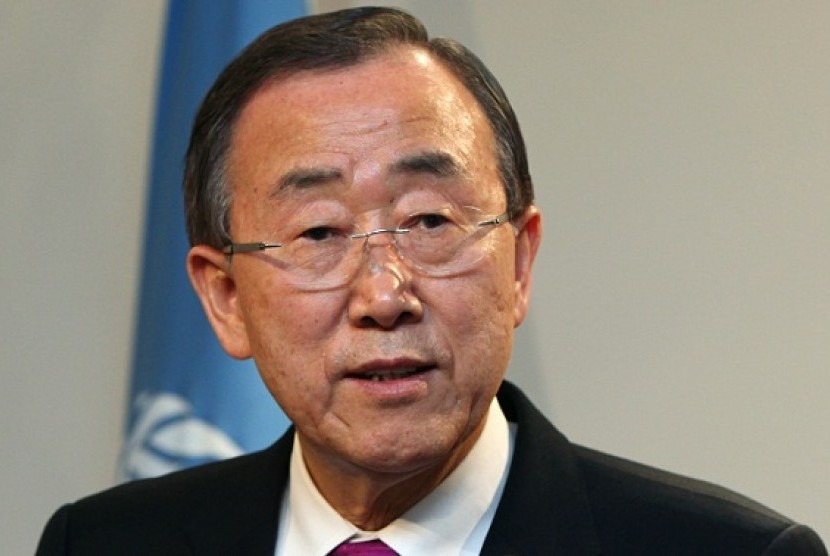REPUBLIKA.CO.ID, NEW YORK -- UN Secretary-General Ban Ki- moon on Monday urged the Organization of Islamic Cooperation (OIC) to try its best to mend rifts between Muslim communities and stem the influence of radical groups.
"The challenges of peace and security are too complex and interlinked for any country or organization to address alone. To be successful, we must join forces and craft joint strategies that draw on respective strengths," Ban told a Security Council meeting on cooperation between the United Nations and regional and sub- regional organizations.
"The United Nations and the OIC are working closely on issues ranging from conflict prevention and resolution to counter- terrorism ... from human rights and humanitarian affairs to intercultural dialogue and sustainable development," he said in his remarks to the 15-member council.
As an international organization consisting of 57 member states, the OIC claims that it stands for "the collective voice of the Muslim world" and works to "safeguard and protect the interests of the Muslim world in the spirit of promoting international peace and harmony."
Praising ongoing cooperation between the two organizations on Syria, the UN chief said more needs to be done for a comprehensive agreement to end a war which has heightened tensions between Sunni and Shia communities.
Noting that tragic and violent manifestations of these divisions in many parts of the Muslim world are profoundly worrying, Ban urged the OIC and all leaders to do everything possible to repair rifts and rebuild confidence between Muslim communities as well as to stem the influence of radical armed groups and violent extremists.
In other regions plagued by conflicts, the top UN official highlighted the organization's potential role to help break the status quo in the occupied Palestinian territory and forge a way forward in the Middle East peace process within the agreed timeframe.
He cited the OIC's plans to visit Myanmar and welcomed its delegation's "constructive engagement" to reduce tensions there.
Ban also highlighted the OIC's efforts in Afghanistan and Sudan, and urged further partnerships between the UN and OIC in Mali following the milestone presidential election there.
Noting that the importance of intercultural dialogue between and within faiths "is more important than ever," he said the UN and OIC have made significant progress in this regard through partnership agreements, joint work plans, staff exchanges and joint mediation deployments.
"Let us together pledge to work from this foundation of progress to build a better world for all," he said, urging continued efforts to foster a culture of peace and co-existence.


